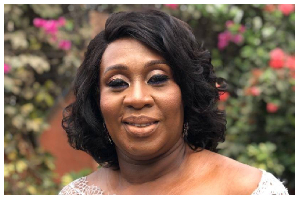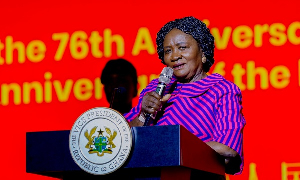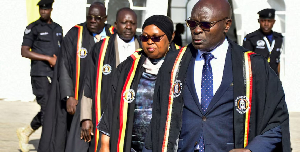By Kwame Okoampa-Ahoofe, Jr., Ph.D.
I am not on state-side, and so I cannot argue effectively against Prof. Kwame Karikari's accusation about the New Patriotic Party's parliamentarians' having been sleeping at the wheel, nonchalantly, while their counterparts of the ruling National Democratic Congress (NDC) take Ghanaian taxpayers for a ride (Citifmonline.com / Ghanaweb.com 6/2/14).
Well, to the extent that NPP politicians appear to be more focused on infighting and fierce and unhealthy factional jockeying for petty political advantages than studiously taking care of the affairs of the people, I wholeheartedly agree with the former Executive Director of the Media Foundation for West Africa (MFWA). However, on the decision by the NPP leaders to boycott the NDC-sponsored National Economic Forum (NEF), I beg to sharply differ with Prof. Karikari.
The fact of the matter is that the Mahama-led government of the National Democratic Congress was voted into power on the grounds that it claimed to have a far more meaningful and progressive development agenda than its main challenger, the main opposition New Patriotic Party. Thus calling for a National Economic Forum scarcely halfway through its four-year tenure, in order to decide on the fundamentals of effective economic management, was both an insult to the intelligence of the voters who put the Mahama government into the Flagstaff House, as well as its being an inexcusable mockery of the very counterparts who the NDC propagandists successfully caricatured to the Ghanaian electorate as the "property-owning robber-barons."
A typical example of such crude and hardnosed propaganda tack was the rascally scapegoating of Mr. Jake Obetsebi-Lamptey, the former NPP National Chairman, in the contractual dispute over the legitimate sale of a publicly owned real-estate property in which Mr. Obetsebi-Lamptey was the purchaser. Even as the Wood-presided Supreme Court, finding in favor of Mr. Obetsebi-Lamptey, the respondent, clearly noted, the flagrant sale of public property had been normalized by the Rawlings-led National Democratic Congress and therefore could not be selectively executed for the exclusive benefit of the NDC operatives.
It also depends on what media exposes Prof. Karikari would have NPP parliamentarians doggedly pursue. And even on the latter score, Prof. Karikari ought to bear in mind that the peremptory powers afforded the Speaker of the House, a passionate NDC partisan, as scandalously witnessed in the Merchant Bank Affair, does little to encourage a forward-looking opposition Member of Parliament to objectively and conscientiously take on a seemingly pathologically corrupt Mahama regime. This stultifying state of our constitutional affairs may well be culpable for the perceived rank nonchalance and the apparently nihilistic attitude of the parliamentary opposition.
And so, perhaps, Prof. Karikari needs to focus on his criticism on the imperative need for constitutional reforms of a kind that is enabling of the sort of constructive criticism and ideational contribution to national development the Legon media studies scholar would have the NPP leaders indulge. The rampant and patently infantile boycotting of the Parliamentary Vetting Committee by the opposition, whoever the latter happens to be, is decidedly one of accepted bad practice than anything else.
And here also, some reform may be in order; but as to precisely what kind of reform, Prof. Karikari's guess is as good as mine. You see, the routine practice on the Parliamentary Vetting Committee has perennially entailed an adamant majority carrying the vote, irrespective of the merits of any adverse findings that may be presented against any particular candidate by minority members of the committee. In other words, what usually happens on the Parliamentary Vetting Committee are members of two ideologically opposed camps hermetically and intransigently sticking to the respective guns, as it were. In such a rancor-charged atmosphere of invariable dialogical deadlock, it makes perfect sense for the effectively marginalized party to wisely withdraw his/her participation.
Just the other day, for instance, the Parliamentary Minority Leader, Mr. Osei Kyei Mensah-Bonsu, scandalously informed the global democratic community that a special law or amendment needed to be appended to our Fourth-Republican Constitution to enable House Members to initiate the process of crafting legislative instruments, or bills, into laws. Now, you tell me, Prof. Karikari: What sort of legislature in a democratic political culture does not have the mandate, or legitimate authority, to make and pass laws?
______________________________________________________________
*Kwame Okoampa-Ahoofe, Jr., Ph.D.
Department of English
Nassau Community College of SUNY
Garden City, New York
Board Member, The Nassau Review
June 2, 2014
okoampaahoofe@optimum.net
###
Opinions of Thursday, 5 June 2014
Columnist: Okoampa-Ahoofe, Kwame














